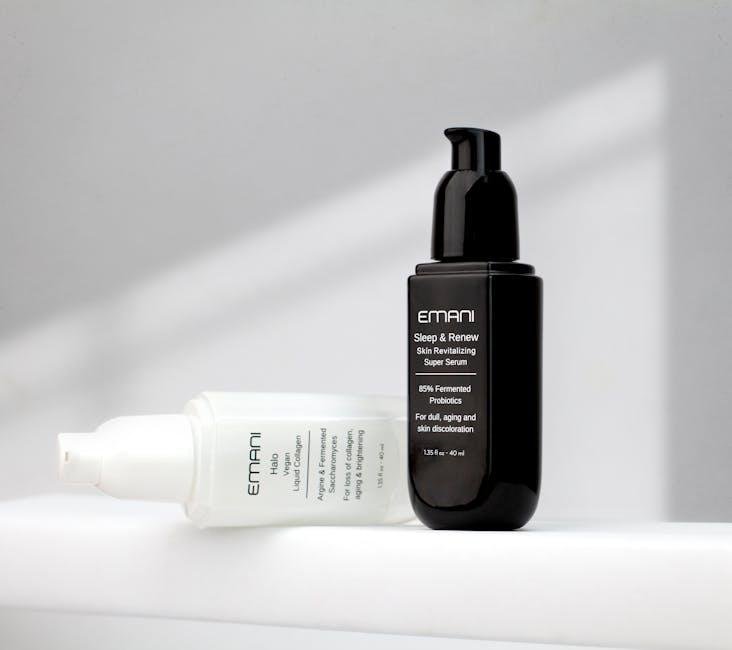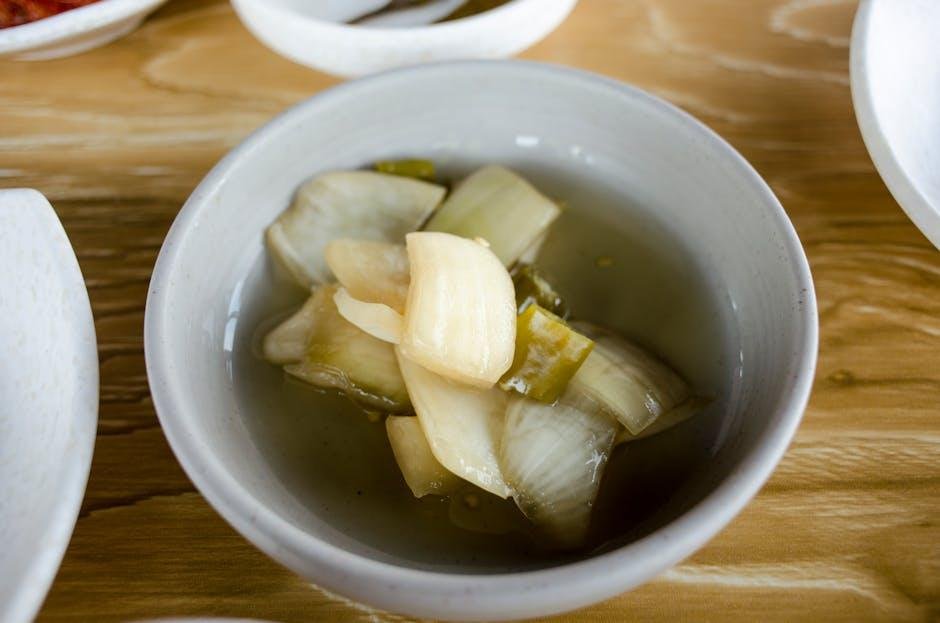In recent years, the beauty industry has witnessed a surge of enthusiasm for probiotics, those friendly bacteria often touted for their myriad benefits to gut health. But now, they’re making a splash in a new arena: skincare. Wiht claims of promoting a balanced microbiome and enhancing skin health, probiotics in serums, creams, and masks are capturing the attention of beauty enthusiasts and skeptics alike. But as the shelves swell with these promising potions, one question looms large: Are probiotics really worth the hype in our skincare routines? In this article, we’ll delve into the science behind probiotics in skincare, explore their potential benefits and drawbacks, and help you separate fact from fiction as you navigate this probiotic phenomenon.
The Science Behind Probiotics and Skin Health
Probiotics are live microorganisms that confer health benefits when administered in adequate amounts, and their potential extends beyond gut health into skincare. Recent studies suggest that the skin microbiome plays a critical role in maintaining skin barrier function, and an imbalanced microbiome can contribute to various skin conditions such as acne, eczema, and rosacea. By introducing probiotics topically or through supplements, individuals may promote a healthier skin microbiome. Some of the key benefits associated with probiotics in skincare include:
- Restoring skin barrier integrity
- Reducing inflammation and redness
- Balancing skin moisture levels
- Combating pathogenic bacteria responsible for acne
To further investigate the link between probiotics and skin health, researchers have conducted various clinical trials. In one study, participants using a probiotic-enhanced cream reported a significant improvement in skin hydration and elasticity after several weeks of treatment. Here’s a table summarizing the research findings:
| Study | Findings | Duration |
|---|---|---|
| Randomized Control Trial | Improved hydration and reduced acne lesions | 8 weeks |
| Clinical study | Enhanced skin barrier function and lower inflammation | 6 weeks |

Exploring the Benefits of Probiotics in Skincare Products
Probiotics are not only for gut health; they are increasingly being recognized for their potential benefits in skincare products. By incorporating these beneficial bacteria into cosmetic formulations, brands aim to enhance the skin’s natural defenses.Probiotics can definitely help improve the skin’s barrier function, ensuring that moisture is locked in and harmful irritants are kept out. Moreover, they may assist in balancing the skin’s microbiome, which can lead to a more radiant and even complexion. Common benefits include:
- Increased hydration – Probiotics can strengthen the skin’s moisture levels.
- Reduced inflammation – They may alleviate issues like redness or irritation.
- enhanced healing properties – Probiotics can support the skin’s natural repair processes.
The effectiveness of probiotics in skincare largely depends on their formulation and the specific strains used. Different probiotic strains have varying effects on the skin, with some proving more beneficial for acne-prone skin, while others may better suit dry or sensitive types. It’s worth noting that not all probiotic-infused products are created equal,and consumers should look for clinically tested options to ensure the desired benefits. A simple comparison of common strains used in skincare can provide insight into their potential effects:
| Probiotic Strain | Skin benefits |
|---|---|
| Lactobacillus acidophilus | Helps with acne reduction and soothes irritation. |
| Bifidobacterium bifidum | Enhances moisture levels and supports barrier repair. |
| Streptococcus thermophilus | Reduces redness and improves overall skin tone. |

Evaluating Popular Probiotic Ingredients and Formulations
When it comes to evaluating the efficacy of probiotic ingredients in skincare, it’s essential to delve into the most commonly used strains and their purported benefits. Some of the most popular strains include Lactobacillus, Bifidobacterium, and Streptococcus thermophilus. These probiotics are celebrated for their ability to enhance the skin barrier, balancing pH levels and potentially alleviating irritations associated with conditions like acne and eczema.Each strain may contribute uniquely to skin health, thus understanding the specific benefits and applications of these microorganisms is crucial for consumers seeking probiotic-based solutions.
Different formulations also play a significant role in the effectiveness of probiotic skincare products. Topical applications frequently enough utilize various combinations of probiotics alongside prebiotics and postbiotics. These can enhance the delivery and sustainability of live cultures on the skin. Notably, here are a few factors to consider when evaluating probiotic skincare formulations:
- Type of Strain: Specific strains target distinct skin concerns.
- formulation Type: Creams, serums, or masks can affect activity levels.
- Delivery Method: Encapsulation techniques may improve stability.
| Probiotic Strain | Key Benefits |
|---|---|
| Lactobacillus | Reduces inflammation, balances skin flora |
| Bifidobacterium | Improves hydration, soothes irritation |
| Streptococcus thermophilus | Enhances skin barrier, promotes even tone |

Tips for Choosing Probiotic Skincare That Works for You
When considering probiotic skincare, first, evaluate yoru skin type and concerns. Probiotics can offer different benefits, so knowing what you need is crucial. Here are some factors to keep in mind:
- Skin Type: Dry,oily,sensitive,or combination skin may react differently to probiotics.
- Skin Concerns: If you struggle with acne, redness, or aging, look for products targeting those specific issues.
- Ingredients: Investigate the specific strains of probiotics used; not all strains have the same effectiveness.
- Formulation: Decide whether you prefer creams, serums, or masks that suit your application preference.
Another essential aspect is to assess how the product fits into your existing skincare routine. Introducing a new item can be tricky, so consider these tips:
- Patch Test: Always perform a patch test before fully integrating a product to avoid adverse reactions.
- Layering Products: Check if the probiotic product can be layered with serums or moisturizers without causing pilling.
- Research Brands: Opt for reputable brands that provide transparency regarding their probiotic strains and formulations.
- User Reviews: Read customer feedback to gauge the product’s effectiveness and suitability for similar skin types.
Concluding Remarks
In the ever-evolving landscape of skincare, probiotics have emerged as a fascinating contender. As we’ve explored, these beneficial bacteria promise not just a superficial glow, but a potential overhaul of our skin’s overall health. While the research is still blossoming, it’s clear that integrating probiotics into your skincare routine could offer more than just a fleeting trend.
Ultimately, whether or not probiotics are worth the investment rests in the hands of the individual. As with any skincare choice, personal experimentation and responsiveness are key. With countless products flooding the market, it’s worthwhile to approach each new formulation with curiosity and a critical eye. The journey to radiant,healthy skin is often one of trial and finding,and probiotics may very well be a worthy companion on that path. So, if you’re ready to embrace the microbial revolution in your beauty regimen, dive in—your skin might just thank you for it.

